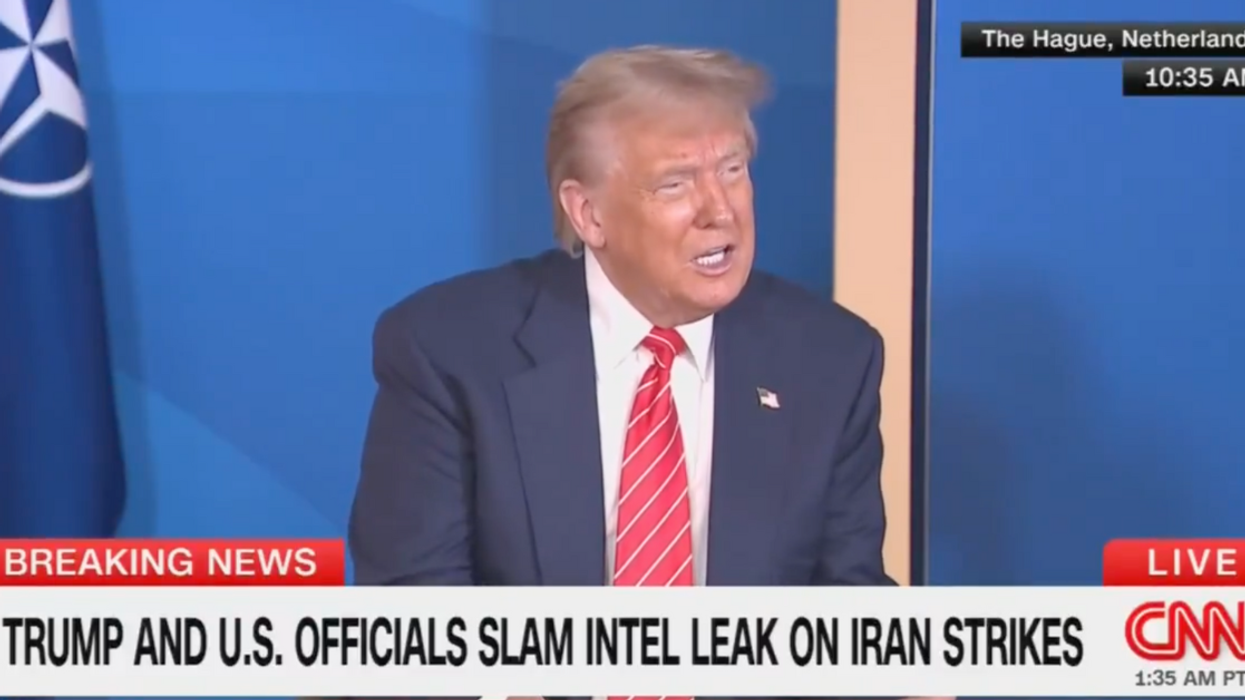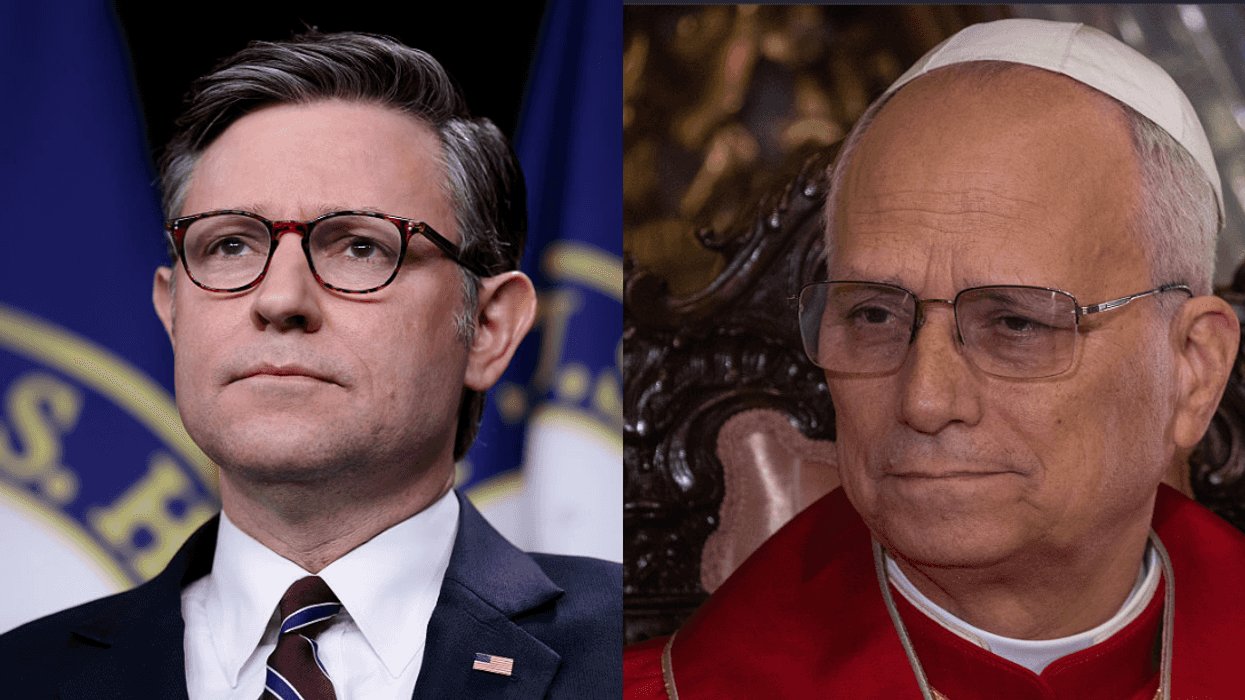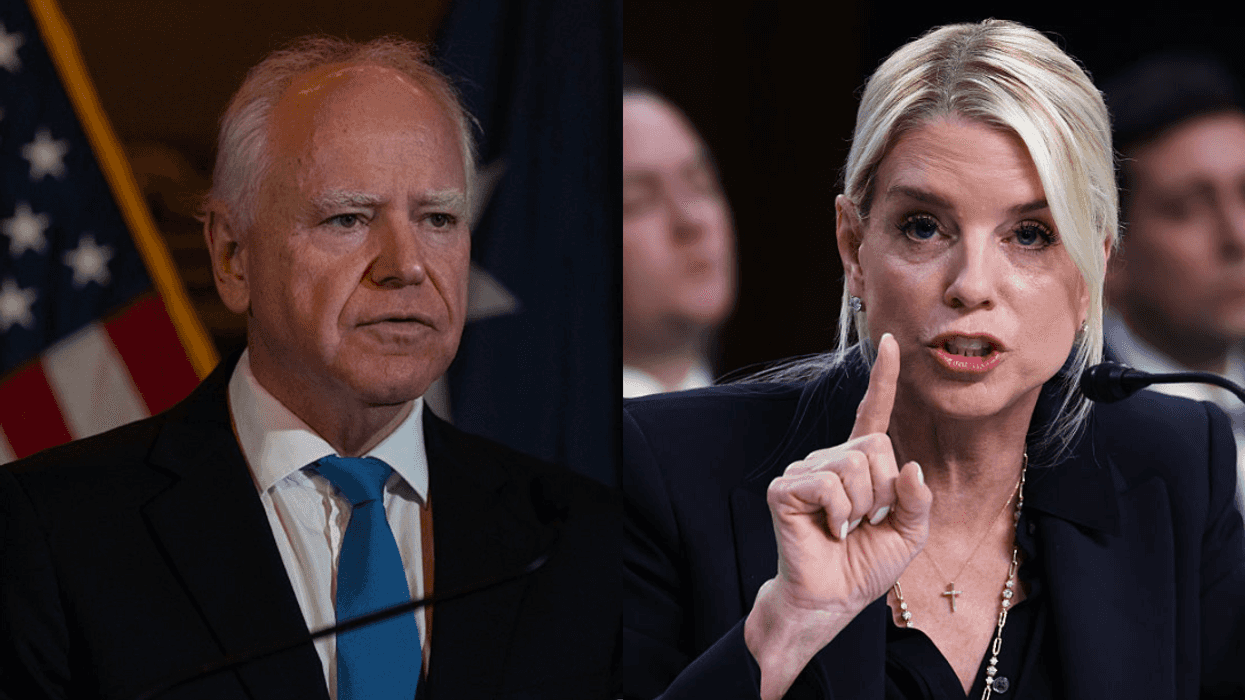President Donald Trump was called out after he gloated to reporters in the Netherlands that his unilateral decision to bomb Iran was akin to the World War II bombings of Hiroshima and Nagasaki that "ended the war"—a declaration that risks worsening geopolitical tensions amid concerns about a wider war in the Middle East.
On August 6 and August 9, 1945, the United States executed the detonation of two atomic bombs above the Japanese cities of Hiroshima and Nagasaki, correspondingly.
The aerial assaults resulted in the demise of an estimated 129,000 to 226,000 individuals, predominantly civilians. These incidents remain unparalleled as the sole deployment of nuclear weaponry in an armed conflict.
In the ensuing span of two to four months, the aftermath of the atomic bombings resulted in the passing of an estimated 90,000 to 146,000 lives in Hiroshima and 60,000 to 80,000 lives in Nagasaki. Roughly half of these casualties transpired on the initial day of the bombings.
Over the subsequent months, a multitude of individuals continued to succumb to the consequences of burns, radiation sickness, injuries, and a compounding of afflictions stemming from illness and malnutrition. The majority of those lost were civilians.
Yet Trump nonetheless made his claim even though an early U.S. intelligence assessment by the Defense Intelligence Agency concluded that the military strikes on three Iranian nuclear sites failed to eliminate the core infrastructure of the country’s nuclear program. The report indicated the attacks likely delayed Iran’s capabilities by only a few months.
Trump said:
"Had we not succeeded with that hit—that hit ended the war. That hit ended the war."
"I don't want to use an example of Hiroshima. I don't want to use an example of Nagasaki, but that was essentially the same thing. That ended that war, this ended the war. If we didn't take that out they'd be fighting right now."
You can hear what he said in the video below.
Trump's words are especially egregious because scholars have undertaken exhaustive scrutiny of the ramifications of these bombings on the subsequent course of global history and prevailing popular culture.
The ethical and legal grounds for the bombings remain a subject of intense debate. Advocates argue that the employment of atomic bombs was an essential measure to hasten the conclusion of the war with minimal loss of life.
On the contrary, critics contend that the bombings were excessive for achieving the war's cessation, branding them as an affront to morality and ethics, highlighting the deliberate nuclear assault on civilian populations as a grave war crime.
Trump was swiftly criticized.
The Defense Intelligence Agency is still evaluating the extent of the damage caused by the strikes on Iran’s nuclear facilities, and its assessment could shift as more intelligence is gathered.
However, these initial findings contradict Trump’s repeated assertions that the facilities were “completely and totally obliterated.” Defense Secretary Pete Hegseth echoed that claim over the weekend, saying Iran’s nuclear ambitions had been “obliterated.”
But sources familiar with the intelligence say Iran’s enriched uranium stockpile remains largely untouched. One source noted that the country’s centrifuges were “largely intact,” while another said the uranium had likely been moved out of the targeted facilities before the strikes.















 @goodmorningamerica/Instagram
@goodmorningamerica/Instagram @goodmorningamerica/Instagram
@goodmorningamerica/Instagram @goodmorningamerica/Instagram
@goodmorningamerica/Instagram @goodmorningamerica/Instagram
@goodmorningamerica/Instagram @goodmorningamerica/Instagram
@goodmorningamerica/Instagram @goodmorningamerica/Instagram
@goodmorningamerica/Instagram @goodmorningamerica/Instagram
@goodmorningamerica/Instagram @goodmorningamerica/Instagram
@goodmorningamerica/Instagram @goodmorningamerica/Instagram
@goodmorningamerica/Instagram @goodmorningamerica/Instagram
@goodmorningamerica/Instagram

 @hahna.boards/TikTok
@hahna.boards/TikTok @hahna.boards/TikTok
@hahna.boards/TikTok @hahna.boards/TikTok
@hahna.boards/TikTok @hahna.boards/TikTok
@hahna.boards/TikTok @hahna.boards/TikTok
@hahna.boards/TikTok @hahna.boards/TikTok
@hahna.boards/TikTok @hahna.boards/TikTok
@hahna.boards/TikTok @hahna.boards/TikTok
@hahna.boards/TikTok @hahna.boards/TikTok
@hahna.boards/TikTok @hahna.boards/TikTok
@hahna.boards/TikTok